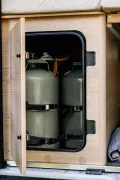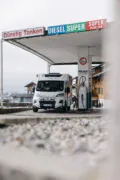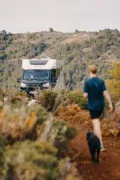Gas Heating: The Classic
Gas heating is a true classic – and for good reason. If your Campervan already has gas appliances like a stove or fridge, a gas heater is the perfect addition. Why? Because you don’t need to install a new energy source. Gas heaters are affordable, easy to use, and gas is widely available (e.g., at hardware stores). Advantages:
- Affordable and simple: low purchase costs and easy to operate. Just connect the gas cylinder and you’re ready.
- Availability: gas can be found almost anywhere, from camping stores to gas stations. Pro tip: always carry a spare cylinder!
- Versatile: gas heaters can heat air or water.





